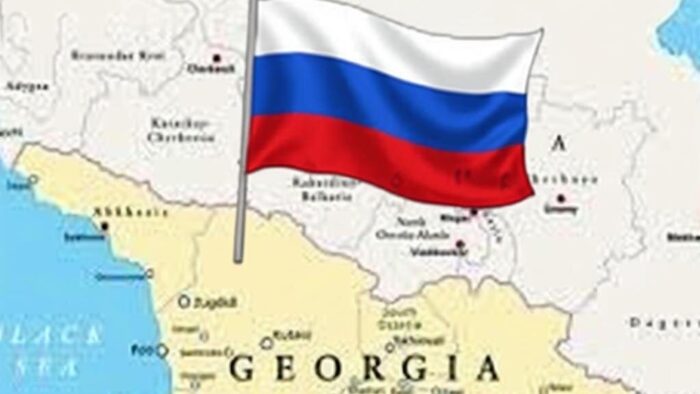The collapse of democracy in Georgia has created a strategic opening for Russia, China, and Iran as the small Caucasus nation abandons its Western orientation under the authoritarian rule of billionaire Bidzina Ivanishvili’s Georgian Dream party. On 16 July 2025, CNN reported that the country once considered a post-Soviet democratic success story now faces US sanctions against its shadow ruler, with almost all opposition leaders jailed and protesters subjected to violent crackdowns amid growing Chinese surveillance and Iranian economic ties. The article begins:
A decade ago, Georgia was the poster child of post-Soviet countries on their way to democracy and freedom. The government was taking steps to fight corruption. Civil society was blossoming. The economy was growing. American businesses were investing. In 2004, even though it was not a member of NATO, Georgia sent its soldiers to Afghanistan to join the United States and other members of the International Security Assistance Force (ISAF), becoming the largest non-NATO contributor to the operation. In 2005, US President George W. Bush visited the capital, Tbilisi, and the highway leading to the airport was renamed “George W. Bush Street.” That street sign is still there, but today, democracy in Georgia, a small but strategically located nation of 3.7 million people, is collapsing. On Capitol Hill, in a bipartisan effort, Republicans and Democrats are pushing for passage of the Megobari Act.
Read more: https://edition.cnn.com/2025/07/16/europe/georgia-protests-russia-china-iran-influence-intl-cmd
Georgia & Foreign Influence: Russian Operations Reshape Democracy
Russian influence operations in Georgia have achieved unprecedented success through a coordinated campaign that combines electoral interference, legislative manipulation, and systematic dismantling of democratic institutions, culminating in what US intelligence analysts describe as soft annexation through political means following the Georgian Dream party’s controversial October 2024 electoral victory. The ruling party has systematically adopted Kremlin-style tactics, including covert attacks on Western diplomats through coordinated social media campaigns and websites designed to silence criticism of the government’s increasingly authoritarian policies, while simultaneously implementing a foreign agents law that mirrors Russian legislation used to suppress civil society organizations.
Moscow’s strategy extends beyond traditional propaganda to encompass sophisticated election interference tactics, fabricated audio recordings designed to intimidate international observers, and economic leverage through energy dependencies, with the success of these operations representing a significant geopolitical shift as European Parliament lawmakers condemned the country’s rule of law backsliding and questioned the legitimacy of Georgia’s current government amid ongoing mass protests and systematic crackdowns on pro-EU opposition forces.
External References:
-
Georgia parliament overturns veto on foreign agents law
-
Georgia: UN experts condemn adoption of Law on Transparency of Foreign Influence
Key Points
- The US imposed sanctions on Georgian Dream founder Bidzina Ivanishvili in December, while about 60 political prisoners languish in jail according to human rights groups
- China’s influence grows through the Anaklia deep-sea port contract given to Chinese state-affiliated companies, while Georgian Dream installs Chinese-made facial recognition cameras
- Georgia strengthens Iran ties with Prime Minister Kobakhidze attending President Raisi’s funeral alongside Hamas and Hezbollah leaders, plus growing trade in Iranian oil
- The bipartisan Megobari Act in US Congress would impose sanctions on Georgian officials for election fraud and political repression, having passed the House
Disclaimer
The Global Influence Operations Report (GIOR) employs AI throughout the posting process, including generating summaries of news items, the introduction, key points, and often the “context” section. We recommend verifying all information before use. Additionally, images are AI-generated and intended solely for illustrative purposes. While they represent the events or individuals discussed, they should not be interpreted as real-world photography.










